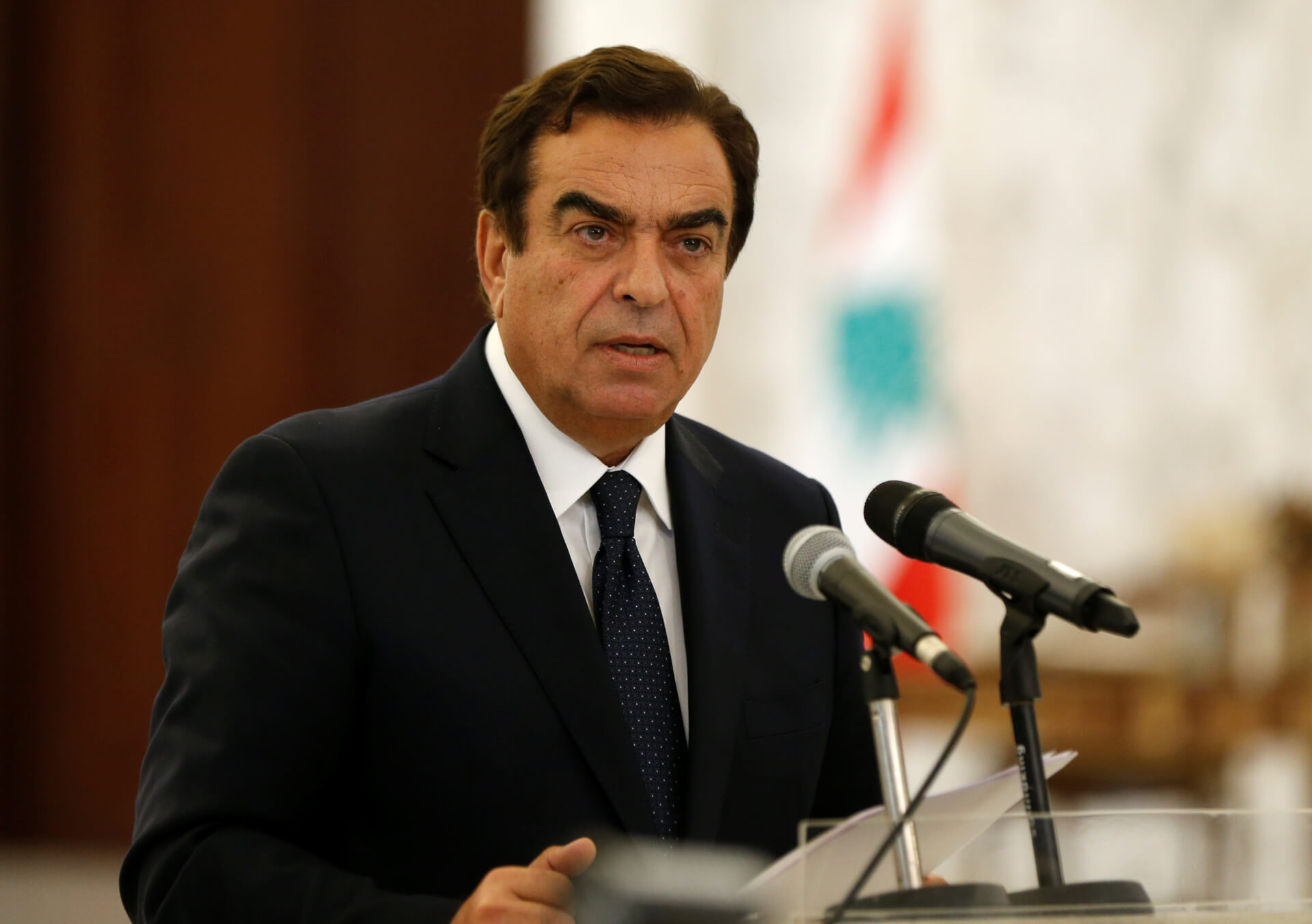Saudi Arabia and its Gulf allies have taken a series of tough measures against Lebanon over inflammatory remarks made by Lebanese information minister George Kordahi last week criticising the Saudi-led war in Yemen.
Saudi Arabia’s official news agency, SPA, reported on Friday that the Kingdom had recalled its ambassador in Lebanon for “consultations” and decided to expel the Lebanese ambassador; Riyadh also announced the suspension of all Lebanese imports.
The Saudi Foreign Ministry stated that the country has “banned [its] citizens from travelling to Lebanon.” It said the measures are meant to “protect the security of the Kingdom and its people.” The Ministry also mentioned that Saudi Arabia would take “other measures” to ensure the safety of the Kingdom.
The Ministry noted that Kordahi’s remarks “represent a new cycle of reprehensible and rejected stances issued by Lebanese officials” against the Kingdom’s policies. Furthermore, it said that his comments were “slanderous” and a “distortion of facts.”
The Foreign Ministry also blamed Hezbollah’s control of Lebanon for the deteriorating ties. It said the “ongoing hijacking […] of the Lebanese state” by Hezbollah has made Lebanon “an arena and a launching pad for activities contrary to the interest of Lebanon and its people.” The Ministry accused Hezbollah of “providing support and training to the Houthi terrorist militia.”
Saudi Foreign Minister Prince Faisal Bin Farhan told Al Arabiya on Sunday on the sidelines of the G20 Summit in Rome that the crisis in Lebanon was due to the dominance of Iran’s proxies in the country. “The problem in Lebanon is the continued Hezbollah dominance of the political system, and the continued inability of governments, political officials and political leaders in Lebanon to take a way out of this crisis and from this tunneled crisis,” he said.
On October 25, Kordahi said during an interview the Iran-backed Houthi rebels are “defending themselves […] against external aggression,” referring to the Saudi-led coalition airstrikes on Yemen. He criticised the coalition for bombing “homes, villages, funerals, and weddings” and called the war in Yemen “futile.” He also said it was “time for it [coalition] to end” the war.
Kordahi’s comments were the second time in less than six months that a Lebanese lawmaker has criticised Saudi Arabia and its allies. In May, former Foreign Minister Charbel Wehbe accused Gulf countries of being complicit in the rise of the Islamic State. Shortly afterwards, Saudi Arabia, the United Arab Emirates (UAE), and the Gulf Cooperation Council (GCC) strongly condemned Wehbe’s remarks.
Following Kordahi’s most recent remarks, Saudi Arabia was joined by its Gulf allies in taking tough measures against Lebanon. The UAE, Kuwait, and Bahrain announced the withdrawal of their ambassadors to Lebanon. The UAE’s Foreign Ministry said the move was in “solidarity” with Saudi Arabia and mentioned that Kordahi’s comments were “unacceptable,” and barred its citizens from travelling to Lebanon.
Bahrain and Kuwait also ordered the Lebanese ambassadors to leave their countries. Qatar, too, condemned Kordahi’s comments, calling them “irresponsible” and urged Lebanon to take steps to repair relations between Beirut and the Gulf.
However, Kordahi said he had no intention of apologising for his remarks. and stressed that he will not resign, despite growing calls for him to do so. “My resignation is out of the question,” Kordahi told Lebanese channel Al-Jadeed on Sunday.
Meanwhile, Lebanese President Michel Aoun said on Saturday that Lebanon wants the “best relations” with Saudi Arabia in an effort to end the diplomatic crisis. Aoun added that he wants to institutionalise relations with Riyadh so that “the positions and opinions issued by some do not affect them, and cause a crisis between the two countries, especially since this issue has been repeated more than once.” His comments came after cabinet ministers held an emergency cabinet meeting on Saturday to address the ongoing tensions.
Against this tense backdrop, Arab League Secretary-General Aboul Gheit on Saturday appealed to the Gulf countries “to reflect on the measures proposed to be taken […] in order to avoid further negative effects on the collapsing Lebanese economy. Gheit expressed “deep concern” over the “rapid deterioration in Lebanese-Gulf relations” and urged President Aoun and Prime Minister Najib Mikati to act swiftly to ease the crisis.
The latest tensions and measures imposed on Lebanon come as the country faces an economic meltdown, political crisis, and ethnic tensions. Lebanon is experiencing rising levels of poverty and unemployment, and the Lebanese pound has lost 90% of its value. The World Bank has stated that the country’s economic crisis ranks as one of the worst that the world has witnessed in over 150 years.

